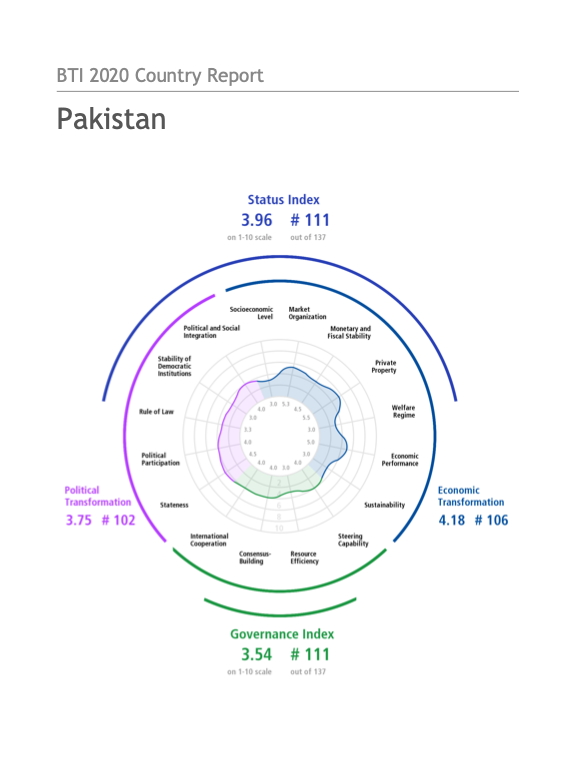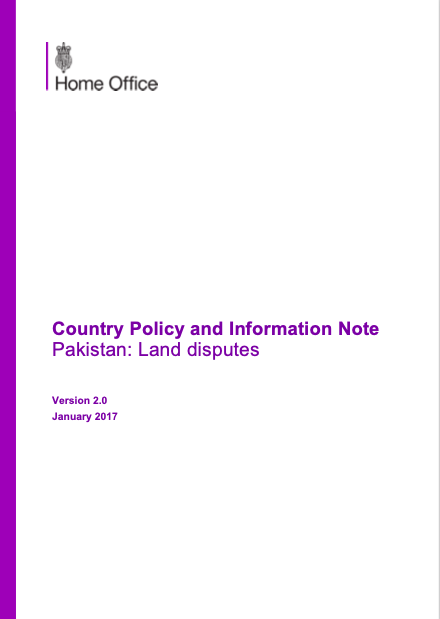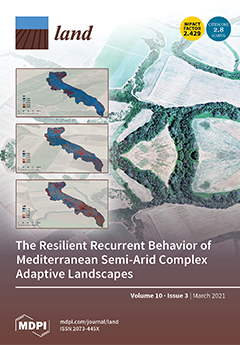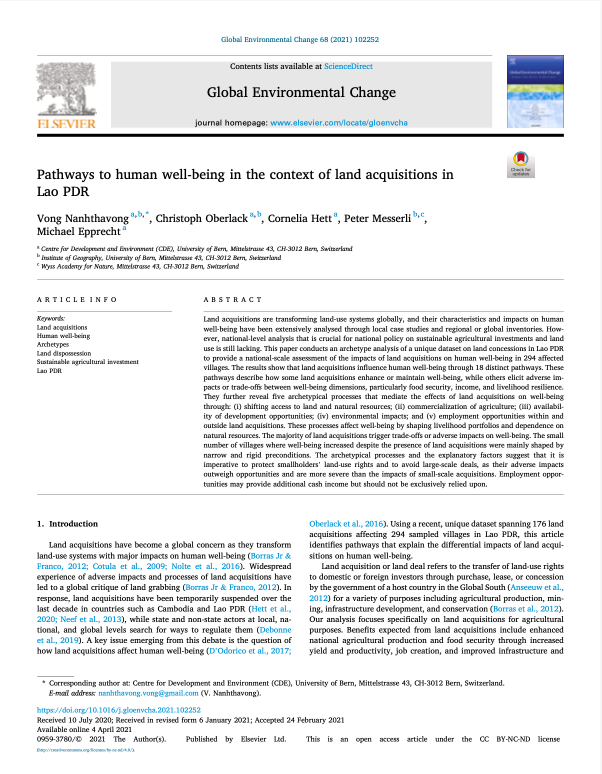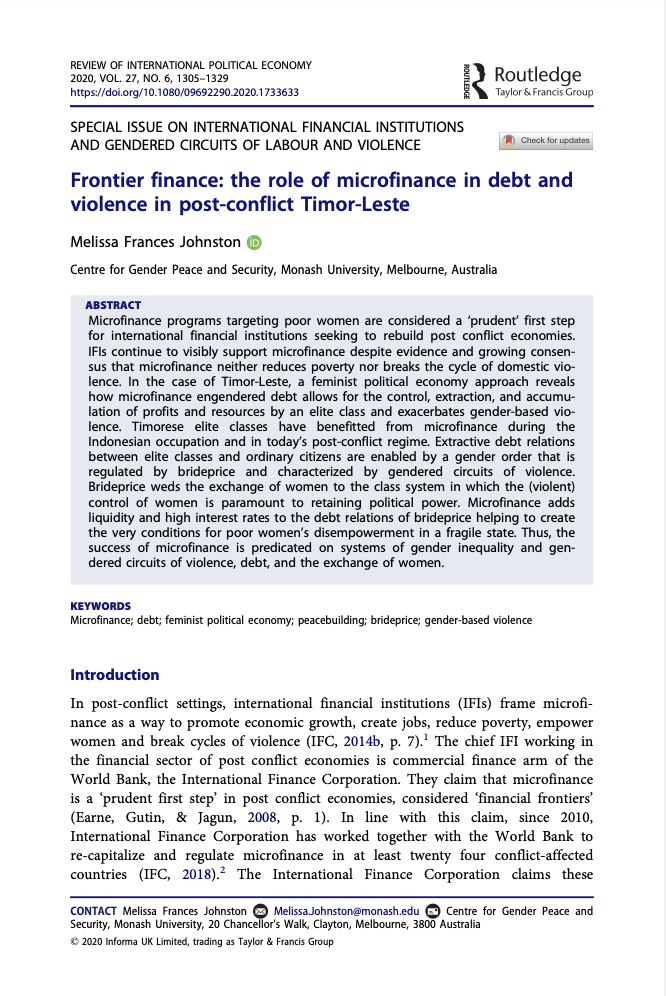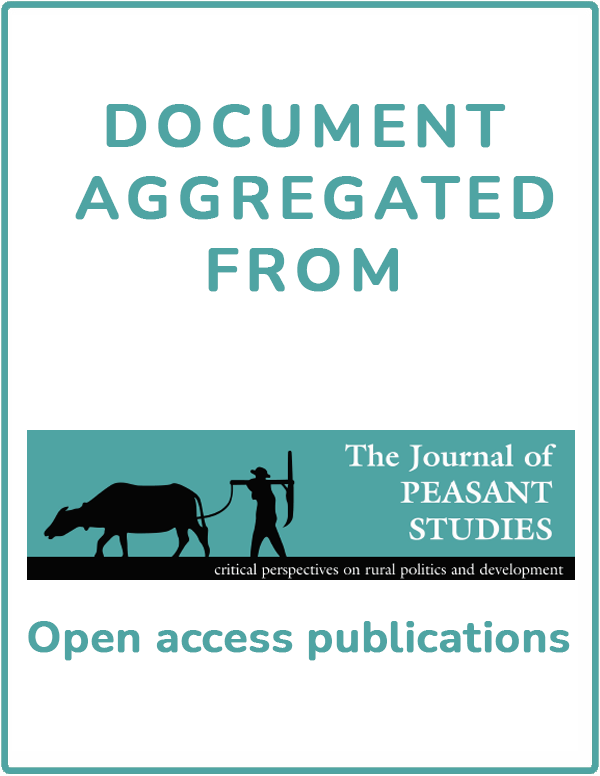BTI 2020 Country Report Pakistan
ABSTRACTED FROM EXECUTIVE SUMMARY: The most important event in Pakistan during the period under review was the 2018 general election. This was the third general election in a row in which rival civilian individuals and parties contested each other at the ballot box for seats in the legislatures and the chance to form a government. Moreover, it was the second consecutive transfer of power from one elected civilian government to another.

